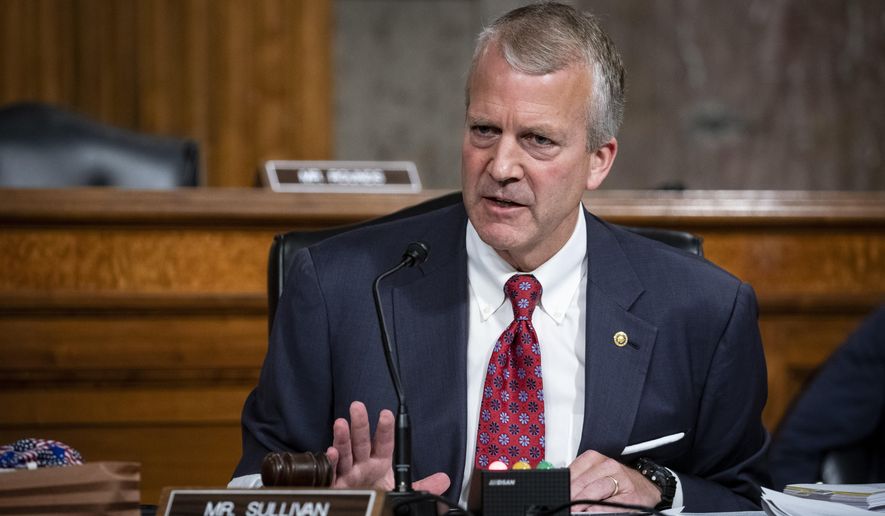When Sen. Dan Sullivan first arrived in Washington more than five years ago, he found that there was little interest in the Arctic. The junior Republican senator from Alaska recalled how the former head of U.S. Northern Command once told him the place was basically devoid of life.
Mr. Sullivan said he put the general straight.
“I told him there are a ton of people up there. They happen to be my constituents,” he said Monday during a discussion hosted by the Wilson Center’s Polar Institute.
More and more people in Washington and capitals around the world are waking up to the potential — and peril — of the Arctic these days, and Alaskans have a front row seat to the race.
“Nobody is talking like that anymore. The Pentagon has been slow to recognize it but they’re coming along,” Mr. Sullivan said.
The Air Force in July unveiled a new, comprehensive strategy to boost its presence, the Coast Guard is rushing to boost its fleet of ice cutters, and leaders around the world are scrambling for control of newly opened trade routes and newly accessible natural resources in the frozen north.
“The Arctic is among the most strategically significant regions of the world today,” Secretary of the Air Force Barbara Barrett said when the strategy was released this summer.
Republican Senator Lisa Murkowski, Alaska’s senior senator, appeared with Mr. Sullivan at-Monday’s session and said the Air Force’s new strategy is just one more sign of the strategic role the Arctic will play in any future global conflict.
“Not all wars are going to be fought in the desert,” she said.
Previous U.S. administrations paid scant attention to the region and declined to invest in its infrastructure, unlike countries like Russia. But that has now begun to change. The Air Force will soon have more than 100 fifth-generation fighters assigned to the region, Ms. Murkowski said.
“We can be in just about any hot spot in the world more readily than other places in the United States,” she said. “But one capability we lack right now is the ability to refuel in the air. That would be an important part in making sure we have the ability to respond.”
Mr. Sullivan said the complicated nature of Alaska’s strategic position is reflected in the fact that the Pentagon’s Indo-Pacific Command, Northern Command, European Command and U.S. Strategic Command all play a role in the state’s military umbrella and in the competition with Russia and other powers in the Arctic.
“When you have so many combatant commands literally coming together, it creates confusion and it kind of creates a strategic sinkhole,” he said. “But, I think it demonstrates how strategically important we are.”
Mr. Sullivan said America’s rivals have not bothered to hide their interest in seeking a new sphere of influence in the Arctic.
Russian President Vladimir Putin “has called the Northwest Passage the ’new Suez Canal,’” Mr. Sullivan noted. “According to him, [Russia] is going to control it and own it. The Chinese are starting to do something similar.”
• Mike Glenn can be reached at mglenn@washingtontimes.com.




Please read our comment policy before commenting.